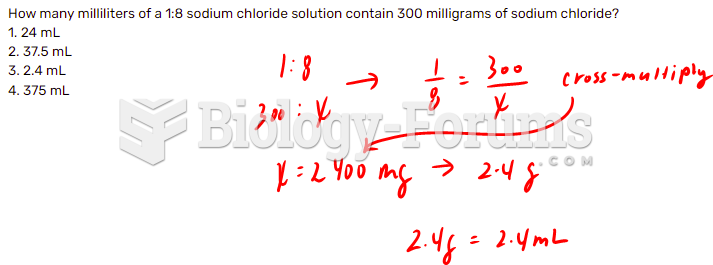|
|
|
The liver is the only organ that has the ability to regenerate itself after certain types of damage. As much as 25% of the liver can be removed, and it will still regenerate back to its original shape and size. However, the liver cannot regenerate after severe damage caused by alcohol.
Though “Krazy Glue” or “Super Glue” has the ability to seal small wounds, it is not recommended for this purpose since it contains many substances that should not enter the body through the skin, and may be harmful.
Thyroid conditions may make getting pregnant impossible.
Bacteria have flourished on the earth for over three billion years. They were the first life forms on the planet.
Cytomegalovirus affects nearly the same amount of newborns every year as Down syndrome.







